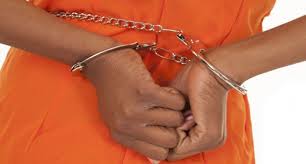Involuntary Manslaughter: The act of unlawfully killing another human being unintentionally.
Most unintentional killings are not murder but involuntary manslaughter. The absence of the element of intent is the key distinguishing factor between voluntary and involuntary manslaughter. In most states involuntary manslaughter results from an improper use of reasonable care or skill while performing a legal act, or while committing an act that is unlawful but not felonious. – The Free Dictionary by Farlex.
Have you ever wished that we could lock up all the drug dealers? Then our drug problems would be over.
Right?
Wrong, it’s not that simple.
As strange as it may seem, drug addiction isn’t really about drugs. It’s about anxiety, stress, low self worth, denial, delusion, dishonesty, shame, guilt, pain, and trauma. Addiction is about unhealthy behaviors, impaired thinking, emotional immaturity and dysfunctional relationships. Even if we could lock up every drug dealer – which by the way might be a family member – the underlying problem, or driver, would still exist.
So what can we do?
It’s hard to hold the addicted person responsible when their brain chemistry is altered. We can sentence them to prison, and they might get clean while there, but once out, we are still dealing with the underlying issues. And more often than not – they’ll go back to seeking relief in the form of mood altering substances.
Then who can we hold responsible?
What about the enabler?
No one intentionally sets out to ‘help’ someone stay sick, or overdose. But what can you do, if a family member refuses to quit enabling?
As crazy as it sounds, an addict needs help to stay sick. Addiction is a progressive and terminal, disease. As the addict progresses, he/she will be in crisis and need financial help.
For the family member who’s being asked to help, it might feel good. We want to help. But addiction is all consuming, and soon, helping, turns into a full time job.
The addict crosses an invisible line into addiction, and the family members ‘helping’ is deadly. If your loved one was in psychosis and wanted a gun would you give it to them with the warning, don’t shoot yourself? Of course not.
Yet, that’s what you do when you enable addiction.
Trade in the loaded gun, for a loaded syringe. The truth is, it’s easier to enable, than not. We don’t want the addicted person to be mad or upset with us. God forbid, we don’t want to feel upset. So we tell our self, just this one time. We make that choice sober. We heed warnings from friends and family and we give in to the sick persons, demands. We fix their problems. We rescue them. We blame other people, for the way they act. We make excuses for them. We lend them money. We pay their drug debts. We pay their child support and utility bills. We pay off lawyers, and some of us, even buy their drugs.
Why would an addict ever choose to get well?
They won’t! Everything they need is being provided for them. Which gives them the opportunity to focus solely on one thing only, more.
After working with families in rehab, they come clean. Most know what they’re doing, isn’t helping, but they do it anyway. They tune out the healthy voices, because the sick person is louder. Helping/fixing/rescuing/controlling is the enabler’s cocaine.
If we seek legal consequences against the addict, why aren’t we charging their helper? After all, they’re colluding with the addict by participating in illegal activities whether they want to think so or not.
You can’t lock up or treat the addict and then send them back home to their enabler and expect them to stay clean/sober.
It’d be like laying a syringe next to a baggie of heroin and then expecting the addict not to shoot it up. Addiction and enabling go hand-in-hand. One can’t exist without the other.
What if we were to charge enablers with Involuntary Manslaughter? When the addict enters treatment the enabler will be identified. (The family knows who the enabler is) This person is given a list of suggestions to follow. If they refuse to follow these suggestions, the recovering addict should not go near them. If they continue to enable and refuse to look at their role – shouldn’t they be held accountable?
The addict will be. For the price of their relapse, can be death.
It’s a drastic approach, but with death by drug overdose happening every eleven to nineteen minutes across North America, we need something drastic to change.
If you want to make the drug dealer the bad guy, think again. In many cases the drug dealers money is coming from the addict’s family.
If you have an addict in the family, you don’t just have one sick person. There are at least two and many times, it’s the whole family. Enabling is every bit as dangerous and tragic as addiction.
If you’ve identified an enabler in your family, encourage them to seek help. The addict’s life depends on it.
If you or someone you know needs help, please call this confidential support line for assistance.1 888 614-2379.



Dauterofgrace
Michelle, they are saying charge the enabler (family members). This article is to make the family member THINK about what they are dong when they take over the responsibilities of the addicts.
As far as drug dealers, many addicts will not expose the drug dealer because they hold a reservation…or maybe fear for their lives.
michelle
As a heroin addict in recovery I don’t think it is right to charge a drug dealer with any murder…etc for selling an addict the drugs we choose to do the drug to cop it to shoot it in our veins how can you hold that dealer responsible for my actions????
Cheryl-Amy Casey
So many valid points !!
julie devereaux
I notice there is currently an opiate addiction epidemic in this country so, I have a question. In this article and many other pieces I read, I wonder if the person who became addicted to a drug that had been prescribed, a person who unwittingly crossed that imaginary line into addiction, also had “anxiety, stress, low self worth, denial, delusion, dishonesty, shame, guilt, pain, and trauma” prior to being prescribed say, opioid pain pills? If so, that’s an awful lot of people. Could it be, perhaps, the public was intentionally mislead about the addictive properties of certain drugs by billion dollar pharmaceutical companies for profit?